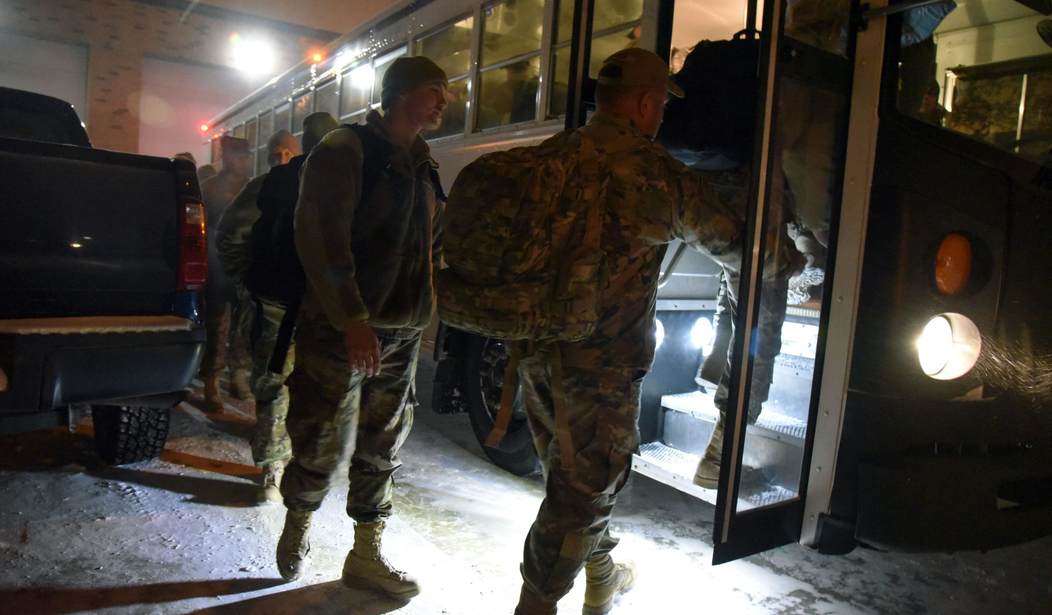Defense Secretary James Mattis said the new Pentagon policy that will remove service members who have not been deployable for a year or more is about fairly sharing the burden within the forces.
The deploy-or-leave policy includes exceptions for pregnancy and wounded warriors. Robert Wilkie, the undersecretary of defense for personnel and readiness, told a Senate Armed Services subcommittee last week that “on any given day, about 13 to 14 percent of the force is medically unable to deploy.”
En route to Washington on Saturday, Mattis told reporters that there is a “higher expectation of deployability by our forces” and the policy isn’t “to make change for change’s sake,” as he vowed when coming into the department.
“The Undersecretary of Defense for Personnel and Readiness about a week ago came out, having defined the problem that initially was brought to his attention by the U.S. Army, where they had many nondeployables on their rolls. You may say, what’s this? People who’ve been injured and not returned to duty. People who have — and I’m not talking about combat injured now. That’s a separate category. But people who are, just for one reason or another, are not able to deploy with their units. It was a significant number, and the Army brought their concerns forward. The other services also highlighted the concerns,” he said. “They’ve come out with a policy that if you’re not deployable for a year or more, you’re going to have to go somewhere else.”
Mattis noted that if there are 100,000 troops and 10 percent are not deployable, “then 90,000 deploy more often, obviously to meet the same deployment standard — so that’s unfair.”
With a lopsided deployment burden, he added, “If you can’t keep the family together, then you’re either going to lose the family or you’re going to lose the soldiers, and that’s a net loss for our society and for our military.”
“The bottom line,” Mattis continued, “is we expect everyone to carry their share of the load, and you know, sometimes things happen, people bust their legs in training or they’re in a car accident, we understand that, and if they — sometimes that even takes months of recovery.”
“We understand that. But this is a deployable military. It’s a lethal military that aligns with our allies and partners,” he said. “If you can’t go overseas … carry a combat load, then obviously someone else has got to go. I want this spread fairly and equitably across the force.”
Mattis was asked about service members saying their deployable status is hampered by bureaucracy, such as not getting scheduled for medical appointments in time.
The Defense secretary replied that the services also “have got to make certain they’re working on deployability — I mean, some of it could probably be solved as easily as giving everybody their shots.”
“But I’m not interested in the excuse; I want the solution,” he added.
Mattis said that if some service members say “I have a good health care system, I get 30 days vacation a year, but I don’t deploy,” there’s “only one category of person we make that exemption for, and that’s combat wounded.”
“If they were wounded in combat, and they want to stay in and they’ve lost their leg or something like this, and they can’t be a paratrooper anymore, then we’ll find a place to use them. That’s a special category. They’ve earned that special status,” he said. “Otherwise, you’re either deployable, or you need to find something else to do. I’m not going to have some people deploying, you know, constantly, and then other people who seem to not pay that price to be in the U.S. military.”









Join the conversation as a VIP Member